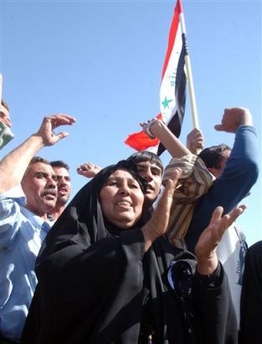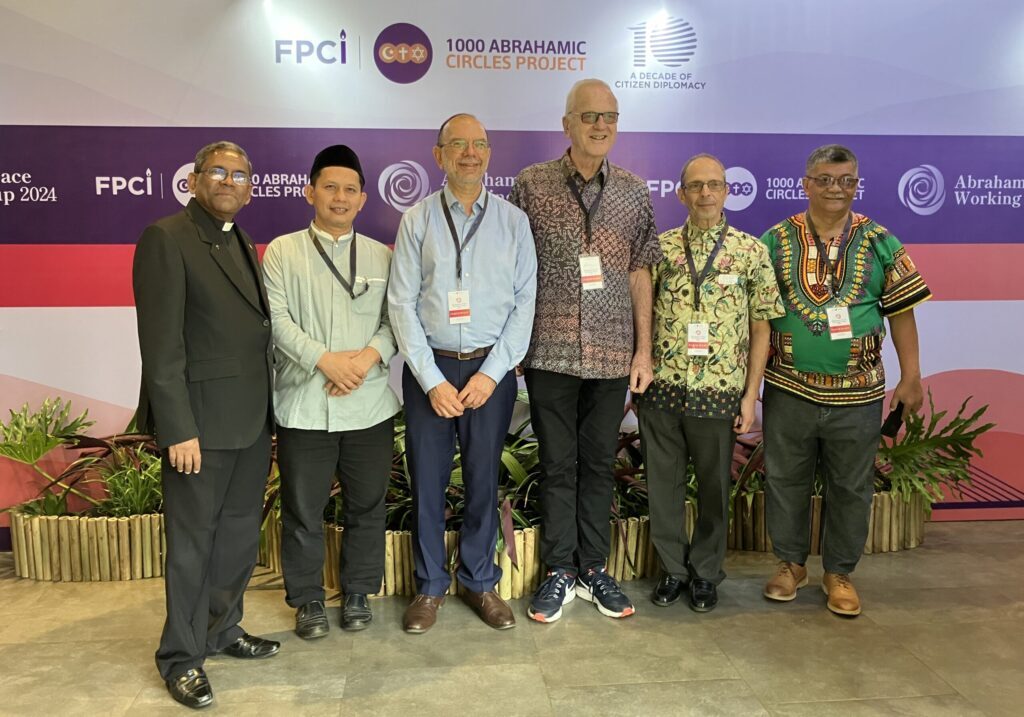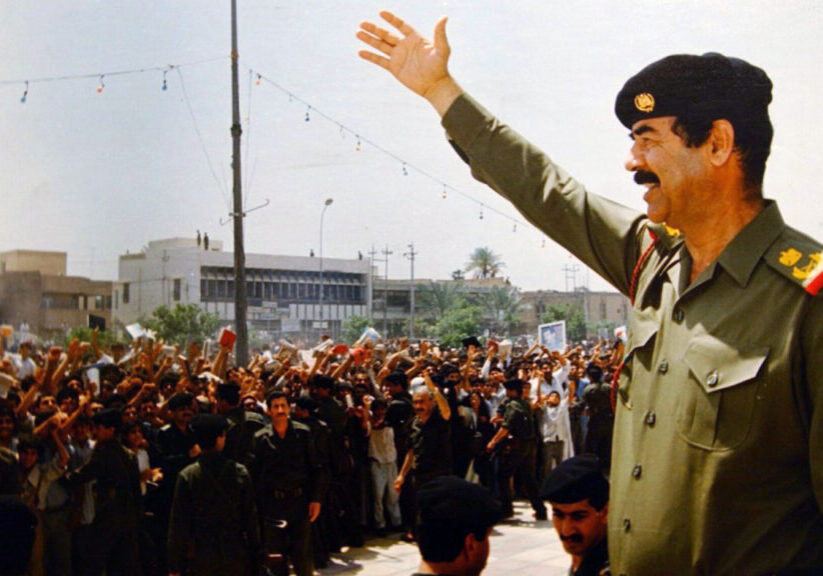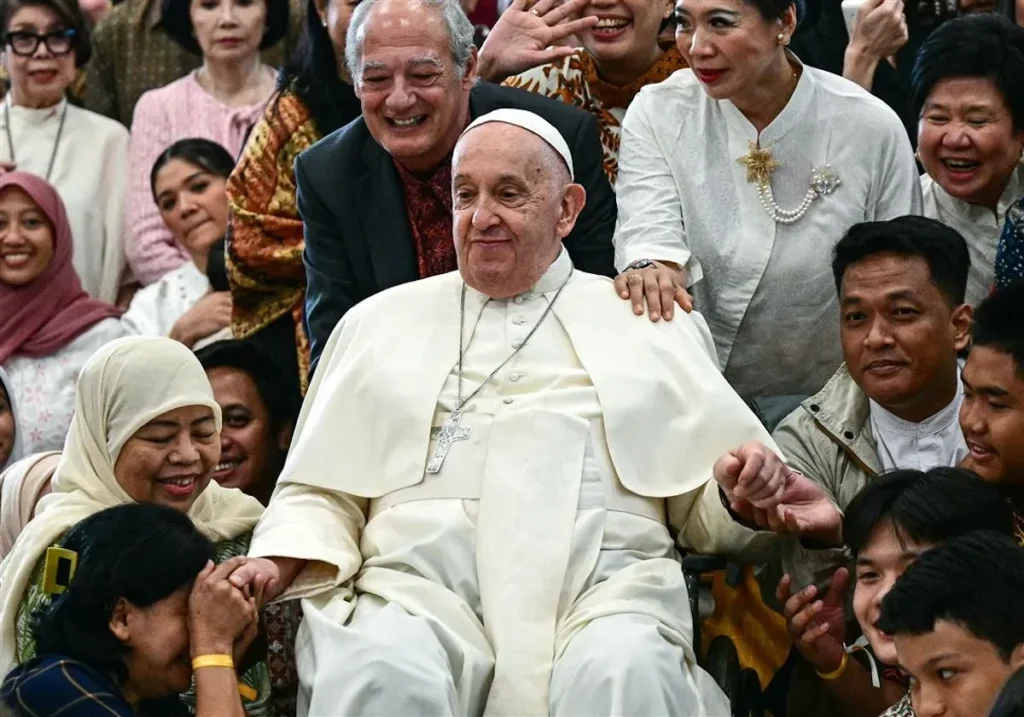Australia/Israel Review
Moral Victory
Sep 27, 2010 | Walter Russell Mead

9/11, al-Qaeda and Iraq
By Walter Russell Mead
Nine years ago on Sept. 11, I came up from the subway stop at 68th Street and Lexington Avenue to hear from the breakfast cart vendor that a plane had crashed into one of the World Trade Centre towers in lower Manhattan. It didn’t seem that important; I pictured a small two seater private plane crashing into a large building and hoped that no one had been killed. Once I got to my office, it became clear that something bigger had happened. Then came a groan from a group of people watching television a few doors down the hall; I rushed in to see the second plane hitting the second tower.
In the hours that followed, life in New York gradually fell apart. Great clouds of ash and smoke rose up from the fires; the transport system crashed. When the buildings collapsed, telephone service went down across the city. With the news of the attack on the Pentagon, I went out to withdraw cash from my bank in fear that electric power also would fail. Traffic came to a halt; by early afternoon there were tens of thousands of grimy, dirty people trudging up the avenues of the city, walking home from lower Manhattan. The BBC asked me to come down to their studios near Times Square for an interview; it was almost impossible to get there – even more difficult to get back. I spent the night with friends; the subway system that had brought me into Manhattan could not get me home.
Nine years later, we are still living in the world that introduced itself on that grim and unforgettable day. Shadowy organisations of hate-crazed fanatics seek to destroy the foundations of civilised life. Satan, we are told, can appear as an Angel of Light; these grandiose, delusional fools have mistaken the King of Death for the Maker of the Universe. “Evil be thou my good,” is what Satan said as he contemplated the ruins of his hopes in Paradise Lost; this is what the Osama bin Ladens of the world have come to. When a bomb goes off in a mosque, they rejoice that God’s will is done. When schoolchildren die horribly in the ruins of a burning bus, they give thanks and praise to God. They pine for greater destruction, greater havoc, for mass deaths of millions; the blood of the innocent has become a drug they cannot live without.
The question of how to deal with these fanatical death-eaters has convulsed world and American politics ever since. It is fatal to ignore them, fatal also to react to their attacks in ways that inflate rather than diminish their support. The free peoples of the world ultimately learned to fight Communism though not without many costly blunders and mistakes. We can and will defeat this new scourge, born like Nazism and Communism of the hatreds and failures of the world. We will learn, we will grow, we will act and we will by God’s grace and God’s help win.
In some ways we are winning already. The greatest victory we have won in this war came on one of its most questionable battlefields: in Iraq. It was not a military victory, though it opened the door to military progress. It was a moral victory. And it was not something that Americans imposed on Muslims; it was a choice that Muslims made.
Nobody in the world had more reason to hate America and love al-Qaeda than the Sunni Arabs of Iraq. After frustrating Iraqi nationalists and humiliating their pride by crushing Iraq’s attempted conquest of its “nineteenth province” (better known to the rest of the world as Kuwait), the US imposed and enforced crippling sanctions. We then invaded the country and overthrew a regime that for all its faults and crimes protected what many Sunnis saw as their rightful place in Iraq – and we handed over power to their despised Shi’ite enemies and rivals.
Then the occupation failed. We made grandiose promises about all the good we would do: the schools, hospitals, pipelines and roads we would build, the peace we would establish, the security we would provide for the people. It was soon a sick joke; incompetence in Washington, poor management and poor choices on the ground in Iraq, a lack of preparation or intelligent planning for the realities of postwar Iraq turned the occupation into a bloody farce. America had replaced a bad Sunni government with anti-Sunni anarchy and chaos.
Iraqi Sunnis did not just learn of America’s failures by watching TV. They heard about Abu Ghraib from relatives and friends who were there. They learned about accidental shootings and humiliating searches at checkpoints by passing through these checkpoints, experiencing the humiliation, and mourning in the funerals of friends and neighbours who died. They lived without electricity, watched their jobs disappear, saw revenge-minded Shi’ites take over the government jobs they once held, and watched militias storm through their neighbourhoods, evicting Sunnis from their homes in an orgy of killing that the Americans could not or would not stop.
Into this hell stepped al-Qaeda and its affiliates. “Brothers,” was their message: “We are the pious Muslims from all over the world. We share your faith. We are here to defend you from the American unbelievers and the Shi’ite heretics. At great danger to ourselves, moved by pity for your troubles and our faith in God, we have come from all the corners of the umma to deliver you.”
But then something happened. Sunni Iraqis took a long hard look at al-Qaeda. They watched bombs go off in marketplaces and mosques. They watched reprisal killings of respected tribal elders and innocents. They watched undisciplined groups of fighters, freed from all moral and social restraint, innocent for the most part of any serious religious knowledge, impose narrow and poorly conceived ideas on society by force in the name of an Islam al-Qaeda neither understood nor respected.
And the Sunni Arabs of Iraq made a choice. They saw al-Qaeda at its best – volunteer freedom fighters come from around the world to fight for them – and they saw America at its worst, incompetent, insensitive, vacillating and violent.
And they chose the United States. They decided that the future of their families, their children and their values was better served by aligning with the United States against the terrorists and against the fanatics.
What those Sunni Arabs in Iraq came to understand is the basic truth of this conflict. The war unleashed nine years ago is not a clash of civilisations between Islam and the West. It is a clash between civilisation and barbarism, and in that clash the Americans and true Muslims are on the same side.
I have met many Muslims in the last nine years, in Iraq, in Pakistan, in Indonesia, Turkey, Nigeria, Kenya, Algeria, on the West Bank, Italy, France, Saudi Arabia, Oman, Syria, Lebanon and in many other countries who have reached the same conclusion.
Many – most – of these Muslims do not approve of many of the features in Western and American life. Many – most – of these Muslims have profound differences with certain aspects of American foreign policy. I have engaged in some bitter and tough discussions during the last nine years, and like to think that maybe I have learned a few things.
But as we look back on the nine years since 9/11, one thing needs to kept clearly in view. The more the world’s Muslims see of al-Qaeda and its agenda of indiscriminate murder, the less they like it.
And there is something more. Over the years I’ve also had the good fortune to meet many of the Americans who have served on the front lines of this conflict. I hear the same message from them. When General Petraeus and Secretary Gates denounced the Koran-burning loons in Florida, they weren’t just speaking as PC commanders at the top. They were speaking out of the experience of American warfighters who have learned in the last nine years that at the end of the day the Muslim majority isn’t our enemy in the war on terror. That majority is our best and our most important ally in winning it.
Over and over in Iraq, American soldiers turned near-defeat into victory as they built relationships with Arab Muslims. American commanders staked the lives of the men under their command on the word of the sheikhs, the tribal elders, the village notables – and that word proved true. They gave good information, provided honest help, and thanks to their wisdom, their courage and their integrity al-Qaeda in Iraq was pushed back.
This means many things, but here’s one of the most important. For the next generation, the American military is going to be led by people whose formative experience was the establishment of relations of trust and respect with angry, frustrated and suspicious Muslims under combat conditions in the Middle East. The American military knows deep in its guts that working with Muslims is the key to beating the bad guys.
Islam and America have both changed since 9/11. Some of the changes are for the better, some for the worse, and with others it is too soon to tell. The consequences flowing from that terrible morning nine years ago are still unfolding, and the world we thought we knew has gone.
But the principal goal of al-Qaeda was clear. It wanted to establish its leadership of the Islamic world while launching a clash between Islam and the West. In this it has signally failed. Even in a time of violence and tension, al-Qaeda is hated and scorned by growing majorities of the world’s Muslims. And in some of the world’s toughest hot spots, on the battlefields of Iraq, in the flooded farmlands of Pakistan, Muslims, Christians and people of all faiths and no faith are working together on common projects for the common good.
Al-Qaeda is failing not just because Americans have decided to fight it. Al-Qaeda is failing because the world’s Muslims are rejecting it.
Nobody knows what the future holds and whether new and terrible attacks like 9/11 or even worse may lie before us. But if Islam continues to rally against terror, there are sharp limits on how much havoc the bad guys can wreak.
It would be deeply satisfying if the final result of 9/11 was a new and richer understanding of Islam in America and of America in Islam. Nine years after the attack, I am more hopeful than ever that this is the course we are on.
Dr. Walter Russell Mead is the Henry A. Kissinger senior fellow for US foreign policy at the Council on Foreign Relations (CFR) and one of the country’s leading students of American foreign policy. His most recent book is God and Gold: Britain, America and the Making of the Modern World (Alfred A. Knopf, 2007). Reprinted from Walter Russell Mead’s blog (blogs.the-american-interest.com/wrm) © Walter Russell Mead, reprinted by permission of the author, all rights reserved.






